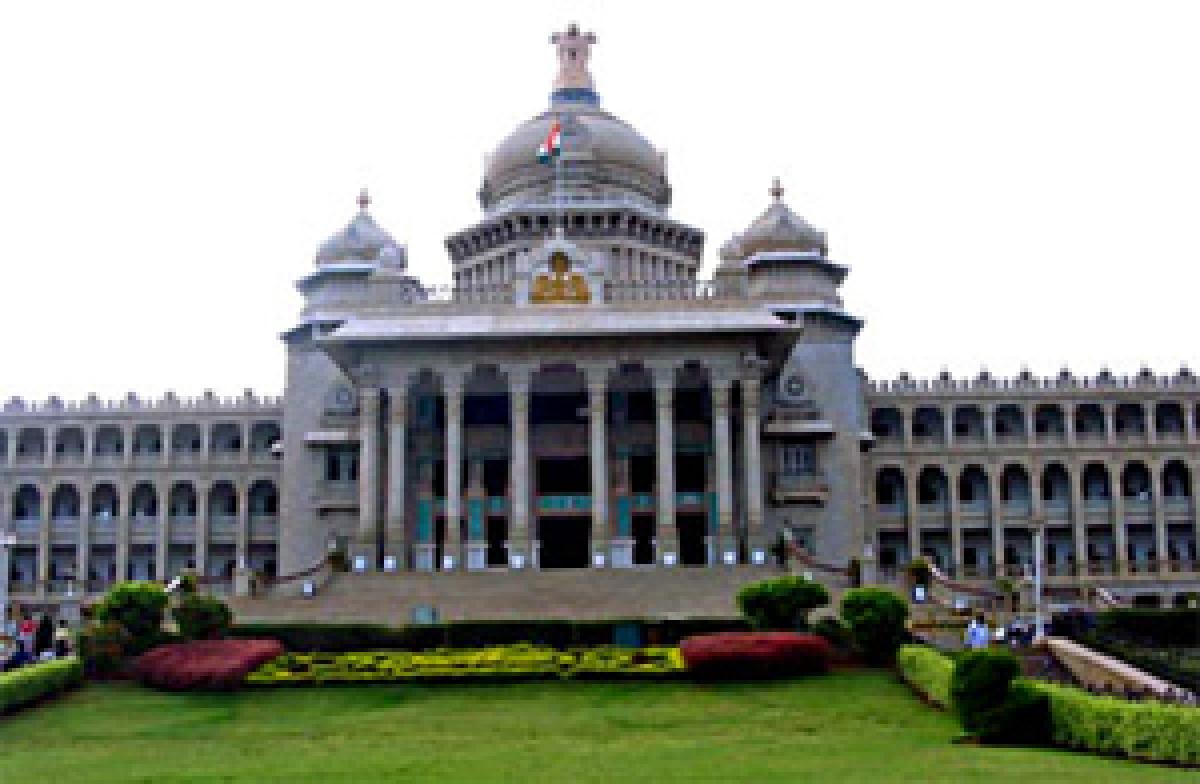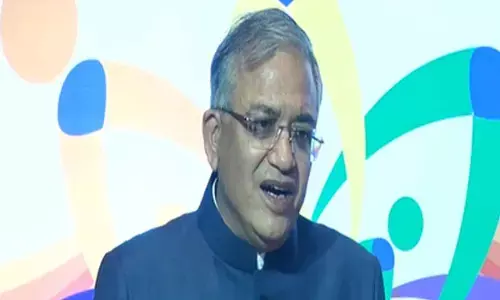Legislative Council revisit the rationale for their relevance

Legislative Council Revisit The Rationale For Their Relevance. The Legislative Council of Andhra Pradesh (or the Andhra Pradesh Vidhan Parishad) is the upper house of the legislature of the Indian state of Andhra Pradesh; the lower house being the Andhra Pradesh Vidhan Sabha.
.jpg) The Legislative Council of Andhra Pradesh (or the Andhra Pradesh Vidhan Parishad) is the upper house of the legislature of the Indian state of Andhra Pradesh; the lower house being the Andhra Pradesh Vidhan Sabha. It is situated in the state capital of Hyderabad, and is constituted of 58 members. The Vidhan Parishad has been in existence in two spells - from 1958 to 1985, and from 2007 onwards
The Legislative Council of Andhra Pradesh (or the Andhra Pradesh Vidhan Parishad) is the upper house of the legislature of the Indian state of Andhra Pradesh; the lower house being the Andhra Pradesh Vidhan Sabha. It is situated in the state capital of Hyderabad, and is constituted of 58 members. The Vidhan Parishad has been in existence in two spells - from 1958 to 1985, and from 2007 onwards
In the 1980s, Andhra Pradesh became one of the first states to seek the abolition of the upper houses, which were being increasingly criticised as being unnecessary, unrepresentative of the population, a burden on the state budget and causing delays in passing legislation.
Chief Minister Dr. Marri Chenna Reddy, who belonged to the Congress (I) - the personification of vested interest in this country - which had won the state elections in 1989. A resolution to revive the Legislative Council was passed in the Vidhan Sabha on January 22, 1990. The Rajya Sabha, the upper house of the Indian Parliament, passed legislation authorising the revival of the Legislative Council as per the resolution of the state Vidhan Sabha on May 28, 1990, but the legislation stalled in the lower house, the Lok Sabha, primarily due to its dissolution in 1991 before the completion of its five-year term. The subsequent Lok Sabhas (1991–1996, 1996–1998, 1998–2004) did not take any further action.
After its victory in the 2004 state elections, the Congress-led Andhra Pradesh Legislative Assembly under the leadership of Dr. YSR passed another resolution on July 8, 2004 calling for the revival of the Legislative Council - small wonder that history of vested interest remains the same. This time it was introduced in the Lok Sabha as the Andhra Pradesh Council Bill on December 16, 2004. On December 15, 2006 the Lok Sabha - under the leadership of UPA Chairperson Ms. Sonia Gandhi - the embodiment and the highest seat of vested interest - passed the legislation, which was quickly passed by the Rajya Sabha on December 20, and received the assent of the President on January 10, 2007. The newly revived Legislative Council was constituted on March 30, 2007 and inaugurated on April 2 by Rameshwar Thakur, the Governor of Andhra Pradesh.
See the turn of events from December 16, 2004 onwards President's assent was obtained in less than a month's time. This is the urgency with which the Legislative Council in united AP was revived. Now after bifurcation both TDP and TRS did not want to discontinue this agency of vested interest that eats away huge public money which is very scarce and highly valuable. The legacy of Congress Party is very much seen in all political parties in India. TRS could have taken the cue from NTR's decision during his time to dissolve it and save huge public money. This money can provide several two bed room houses to the slum dwellers who do not have a proper shelter.
As a citizen I demand a thorough review of the Legislative Councils in all the states in India. It is time to have a national debate on this issue rather than the trivial issues that occupy prime time news hours (gas hours) in prime channels of India. I also demand the state wise cost of running the Legislative Councils and the valued addition made by them in governing / advising the government or in providing honest, transparent governance for the people.
The recent episode of Mr. Revanth Reddy compels one to reconsider this. If the value of a member of Legislative Council is Rs.4.00 Crores, how much an MLC earns per month as a salary and other facilities? Why that much money is to be traded for getting one vote for electing an MLC? Is MLC a profit making public office or an avenue that can generate black money? It is learnt that for contesting as a Corporator in the ensuing GHMC Elections the election expenditure or the fund needed is Rs.4.00 crores. Meaning a candidate will have to spend 4.00 crores to get the seat and his election is depending upon how he can woo the voters with that money. If this is the case of a Corporator, it is logical to think that the value of MLC position is much beyond Rs. 4.00 crores.
We need a governing system that does not spend precious public money for creating political rehabilitation centres like Chairman of various corporations, Members of Legislative Council, govt bodies, etc. Bangaru Telangna does not need the Congress designed corrupt systems. Chandra Babu Naidu can really make the soul of NTR feel happy if he dissolves AP Legislative Council and thereby save money on creating new Capital.
By Dr.IVNS Raju














